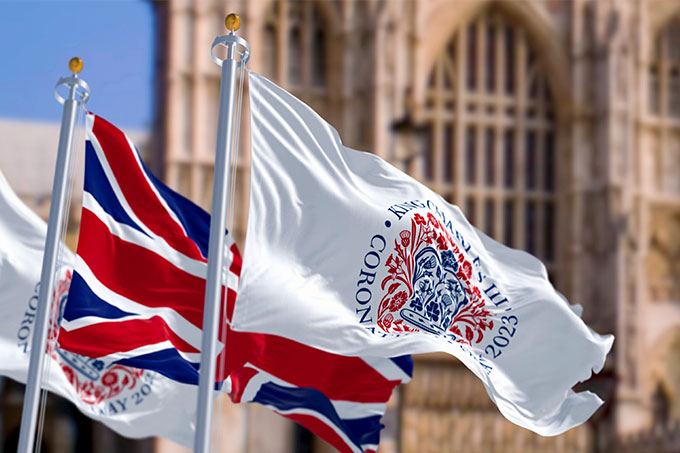Ahead of the Coronation of King Charles III, Dr Ralph Norman looks at the relationship between the Monarchy, the Established Church and all faiths.
The Authorised Liturgy for the Coronation Rite of His Majesty King Charles III is a celebration of “Community, Faith and Service”. It begins with a procession of faith leaders and representatives of faith communities; it ends with the King’s reception of a greeting from the same representatives of faith communities (Jewish, Hindu, Sikh, Muslim, and Buddhist). The words of the greeting – the conclusion of the whole service – are these:
“Your Majesty, as neighbours in faith, we acknowledge the value of public service. We unite with people of all faiths and beliefs in thanksgiving, and in service with you for the common good.”
If you are watching on TV you probably will not hear these words. In respect of Shabbat regulations, which prevent the Chief Rabbi, Ephaim Mirvis, from using electrical devices such as microphones, the greeting will not be amplified.
It is notable that the whole coronation ends with reference to the common good. As a celebration of “community, faith and service”, one might even say that the coronation finds its end in the common good.
It is, of course, a Christian service. The King will make an oath to maintain “the Protestant Reformed Religion established by law” and “preserve inviolably the settlement of the Church of England”. He will also “profess, testify, and declare” that he is a “faithful Protestant”. So how should one interpret the relationship between the Established Church and other faiths?
One fairly common misapprehension is the belief that religions are inherently mutually exclusive and antagonistically competitive. Some feel that religions exclude people. This is not quite right. Yes, religions like Christianity do believe that the Truth (with a capital letter T) has been revealed by God. In the case of Christianity, this special revelation is in the life of Jesus Christ. One can hardly expect Christians to give up on such beliefs. If they did, they would cease to be Christian. But – and it is an important but – this same revelation also has a lot to say about love of neighbour. One can hold certain things to be eternally true and simultaneously wish goodwill to others. It is a case of doing unto others as you would have them do to you. Different communities of faith can work together for the common good.
In 2012, Queen Elizabeth II spoke on the role of Established religion in promoting toleration:
“The concept of our established Church is occasionally misunderstood and, I believe, commonly under-appreciated. Its role is not to defend Anglicanism to the exclusion of other religions. Instead, the Church has a duty to protect the free practice of all faiths in this country. It certainly provides an identity and spiritual dimension for its own many adherents. But also, gently and assuredly, the Church of England has created an environment for other faith communities and indeed people of no faith to live freely. Woven into the fabric of this country, the Church has helped to build a better society – more and more in active co-operation for the common good with those of other faiths.”
The late Queen put her finger on something important here. Note what she said about the “free practice of all faiths”. Faith communities cannot be considered moral unless they are voluntary; they spring from a logically prior theological commitment to personal freedom. In this sense traditional Christianity is rather more liberal and tolerant than some forms of republican secularism. There is a telling difference between St Thomas Aquinas, who taught that a person can never be forced into faith, and Jean-Jacques Rousseau, who sought to force people to be free (whatever that means). What we see here is a principled approach to pluralism and a very real commitment to working together for the common good.
I ought to add that scientific approaches to religion tend to back this up. Over the last few years a number of evolutionary psychologists have looked again at the phenomenon of religion; their research suggests that religious belief is a highly successful evolutionary adaptation which binds people together in communities. Ara Norenzayan has contended that religious groups tend to “cooperate in order to compete”, and “as intergroup competition intensifies, strategies that suppress self-interest for the common good win out”. Where there is competition between faith communities, it tends to be competition to show which is the most benevolent and altruistic. Or, if I may put it this way, religions basically try to “out nice” each other.
So, look out for the common good at the coronation. It may just provide a model of the kind of principled pluralism that multicultural Britain needs today.
Dr Ralph Norman is Principal Lecturer in Theology and Course Director for MA Religion and the Common Good.
 Expert comment
Expert comment Jeanette Earl
Jeanette Earl 1530
1530


